Love them, or hate them, tropes are all around us. From the reluctant hero who becomes the chosen one, to sworn enemies who become lovers, we see tropes in so much of the media we consume.
Whether you just watched Irish Wish (unrequited love and a love triangle) or Dune 2 (the reluctant hero) or, like me, you just rewatched The Bodyguard (the protector trope) — tropes are part of the magic that makes the books, movies, TV shows, and even video games we enjoy.
But What Is A Trope?
The study of tropes has been going on since the classical era, although our definition has changed a bit since the term was coined. A trope is a term we often use to signify literary devices, cliches, or themes that have become familiar genre conventions. One of Merriam-Webster’s definitions of tropes is that they are “common or overused themes or devices”.
Tropes: Love them? Hate them? A Secret Third Thing?
If you’re ever scrolling through #BookTok, or reading book reviews, tropes are frequently mentioned as what draws people into reading a book (and sometimes what drives people away)! Publishers and authors frequently reference the tropes in their marketing and even in the book summaries, ESPECIALLY in certain genres (like romance, and fantasy).
I often see blanket discussions on tropes, whether they are good or bad – and I would like to profess my belief that they are a secret third thing (neither? both?). Tropes have their pros and their cons, and these depend a LOT on how they are portrayed.
“Tropes are like desserts: Everyone has a different preference, not just in what dessert they like but how it’s made,” says Danielle L. Jensen, author of the Norse-inspired fantasy romance A Fate Inked In Blood. “Knowing that readers enjoy such a wide variety allows me to get creative with what will fit in the story I’m writing.”
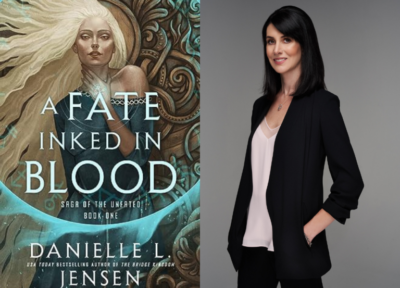
There are dozens of tropes, and on top of those, there are also many inventive and creative subversions of those tropes, especially in genres like horror, and retellings of folklore, and mythology.
This is something Bal Khabra, author of Collide, loves to implement in her writing. “Having a role reversal for the normal tropes can be a great way to add something different,” she says. “I think it’s important to find small creative ways to take it a step further and make it your own.”
Not everyone loves tropes, however. Some argue that they’re cliché, or overused, or predictable. Other people call out tropes for propagating harmful stereotypes or narratives, as many tropes (like the ‘White Saviour’, ‘Magical Negro’ or ‘Mammy’ tropes) have problematic contexts and repercussions, painting marginalized characters as objects, or plot devices, instead of characters with their own depth and story.
All the while, others argue for them, especially in genres like romance, sometimes because of this predictability and familiarity, saying that readers enjoy tropes because they can go into a story knowing what to expect.
Leanne Toshiko Simpson, author of Never Been Better, teaches a diverse literature course at the University of Toronto, and she devotes a week to discussing the expectations of craft— including tropes. “There is a wonderful familiarity and comfort in popular narrative arcs – they offer us reassurance in a world that is often scary and unpredictable,” she says.
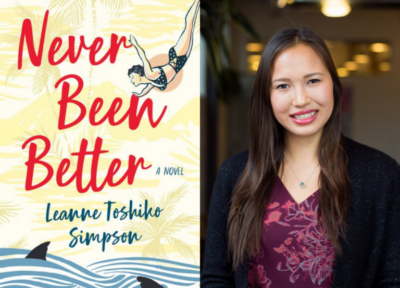
We’re wired to seek out patterns, and when we encounter a familiar trope, it can act as a shortcut for the reader to form the foundation of the story. Enjoying a trope doesn’t necessarily mean endorsing a trope IRL, but sometimes our lizard brains just crave the familiarity of knowing the cadence and the flow of a story, before we invest our time into it.
However, some people criticize the use of tropes as “laziness”, because of this familiarity, insinuating that the writing isn’t as strong or as creative, because the writer is relying on tried and true plot devices that often do the heavy lifting for them. “It teeters between comfort and predictability that reels some in and pushes away others,” Khabra says.
While I agree that sometimes tropes can be used as a substitute for writing or story development, I feel strongly that including tropes isn’t an inherent sign of poor writing. In fact, some of my favourite stories re-invent, re-invigorate or repurpose tropes in powerful and dynamic ways, to subvert expectations, or add additional context to existing characters and stories.
Simpson agrees: “My favourite part about tropes is that they also offer us the ability to subvert them, to bring in life experiences and perspectives that maybe haven’t gotten the spotlight they deserve.”
Love them or hate them, tropes are here to stay!
Tropes are all around us, from historical classics, to modern stories, there isn’t much media that doesn’t at least partially rely on some kind of trope as a narrative device. As someone who finds a lot of pleasure in encountering familiar tropes (and even more pleasure in seeing them turned on their head), I am very pro tropes, so I thought I’d share a few of my favourite tropes, and some books I loved that use them.
FAKE DATING
I don’t know what it is, but I’m a sucker for the “fake dating” trope — there’s something so delightful about a couple coming together out of convenience or in service of ulterior motives, seeing them go through the motions of romance and dating, slowly bring down their walls, and see their interactions become more genuine and romantic. This trope has me giggling and kicking my feet like no other!
Some of my favourite examples of “Fake Dating” include:
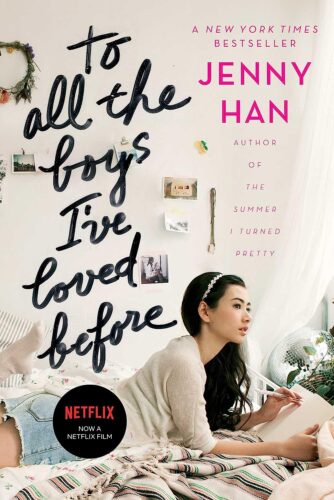
To All The Boys I’ve Loved Before – Jenny Han
Lara Jean copes with big crushes by writing them love letters, and when her love letters accidentally get sent out to all of her (past and present) crushes (including her sister’s ex-boyfriend), she must pretend to date one of her former crushes, who in turn is just trying to make HIS ex-girlfriend jealous. If they’re good together, it’s just because they’re great at pretending… right?
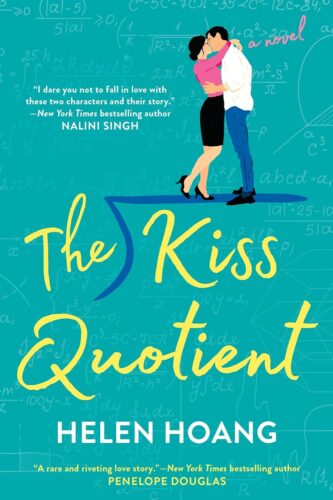
The Kiss Quotient – Helen Hoang
A young, data-obsessed woman with Autism hires a male escort to gain some experience so she can “practice” dating so she can get better at it, before trying it “for real”… Somehow he makes kissing, and dating, and … other things seem more than just bearable, but actually ENJOYABLE?
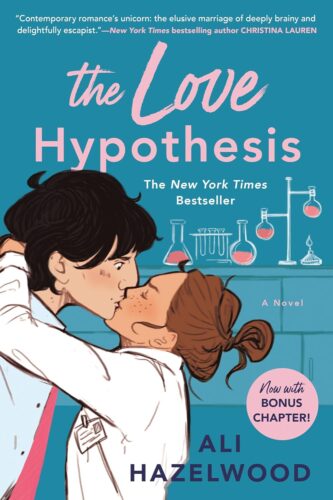
The Love Hypothesis – Ali Hazelwood
A sexy and steamy rom-com about Olive, a phD candidate who doesn’t really believe in romance (or long-lasting relationships), but when she has to convince her best friend that she’s happy and dating, she panics and kisses the first man she sees… A man who happens to be the notorious asshole of the department. When he (surprisingly) agrees to pretend to date her, she’s surprised… and maybe a little thrilled?
ENEMIES-TO-LOVERS:
There’s a thin line between love and hate, and there’s something about sworn enemies who give in to the heat between them that always gives me butterflies. Here are some of my favourite depictions of this trope:
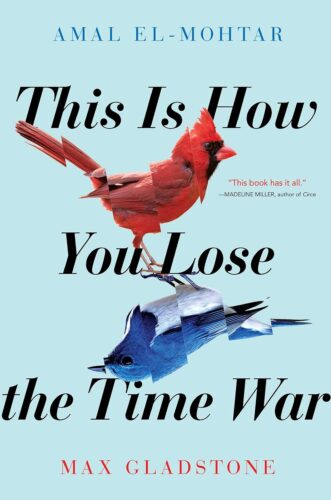
This Is How You Lose the Time War – Amal El-Mohtar & Max Gladstone
I adored this strange, surreal, speculative story about two agents from rival agencies, taking place under the setting of an expansive war across time and space. This book is brilliant and strange, and devastating, and beautiful, and genuinely so hard to explain.
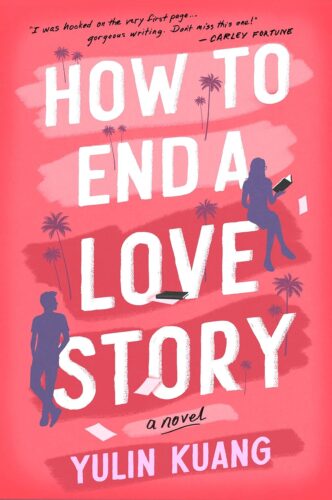
How to End A Love Story – Yulin Kuang
This is a beautiful contemporary story about a bestselling writer who gets the opportunity to help develop her series for TV, only to learn that the writer’s room includes the man she holds responsible for the death of her sister. It’s messy and complicated, but soon they find themselves wound together, connected in a way that they’ve never connected with anyone before. This book will make you laugh, cry, and blush in equal parts.
HERO WITH HIDDEN POWERS:
I LOVE reading fantasy, and the “hero with the hidden powers” trope is common in this genre — and for good reason. Some of my favourite fantasy stories have started with the premise of a young hero who discovers powers and abilities they didn’t know they had. The character growth and development you can see with this kind of story is incredible, and some of my favourite books have employed this trope, including:
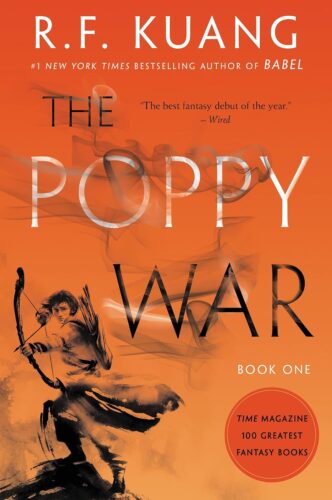
The Poppy War – R. F. Kuang
A brutal and brilliant series about a young orphan named Rin who enrolls at a military academy, to try to carve out a better life for herself. Soon she discovers an aptitude for the mythical art of shamanism, and with the help of her (likely insane?) mentor, she starts to grapple with these newfound powers, all the while the stakes are getting higher and higher, as the empire balances on the cusp of war.
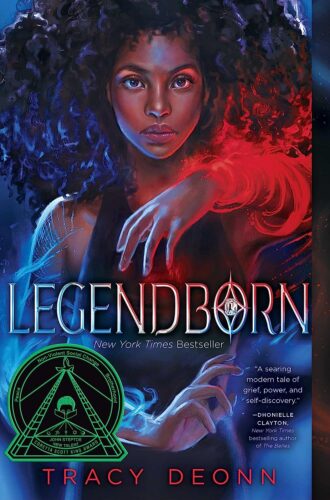
Legendborn – Tracy Deonn
A beautiful and breathtaking story about Bree, a young teen, grappling with grief after losing her mother. While attending classes at a local college, she stumbles upon an exclusive and secret society of “Legendborn” students who have received their powers over generations, from King Arthur, and his knights of the round table, and use these powers to fight nightmare creatures, and protect the realms. As Bree finds herself wrapped up in this world of myths and magic, she must decide how far she’ll go to uncover the truth, and whether she should use her own magic to fight alongside this society, or take it down…
–
Ameema Saeed (@ameemabackwards) is a storyteller, a Capricorn, an avid bookworm, and a curator of very specific playlists and customized book recommendations. She’s a book reviewer, a Sensitivity Reader, a book buyer at Indigo Books & Music, and the Books Editor for She Does the City, where she writes and curates bookish content, and book recommendations. She enjoys bad puns, good food, dancing, and talking about feelings. She writes about books, big feelings, unruly bodies, and her lived experiences, and hopes to write your next favourite book one day. When she’s not reading books, she likes to talk about books (especially diverse books, and books by diverse authors) on her bookstagram: @ReadWithMeemz


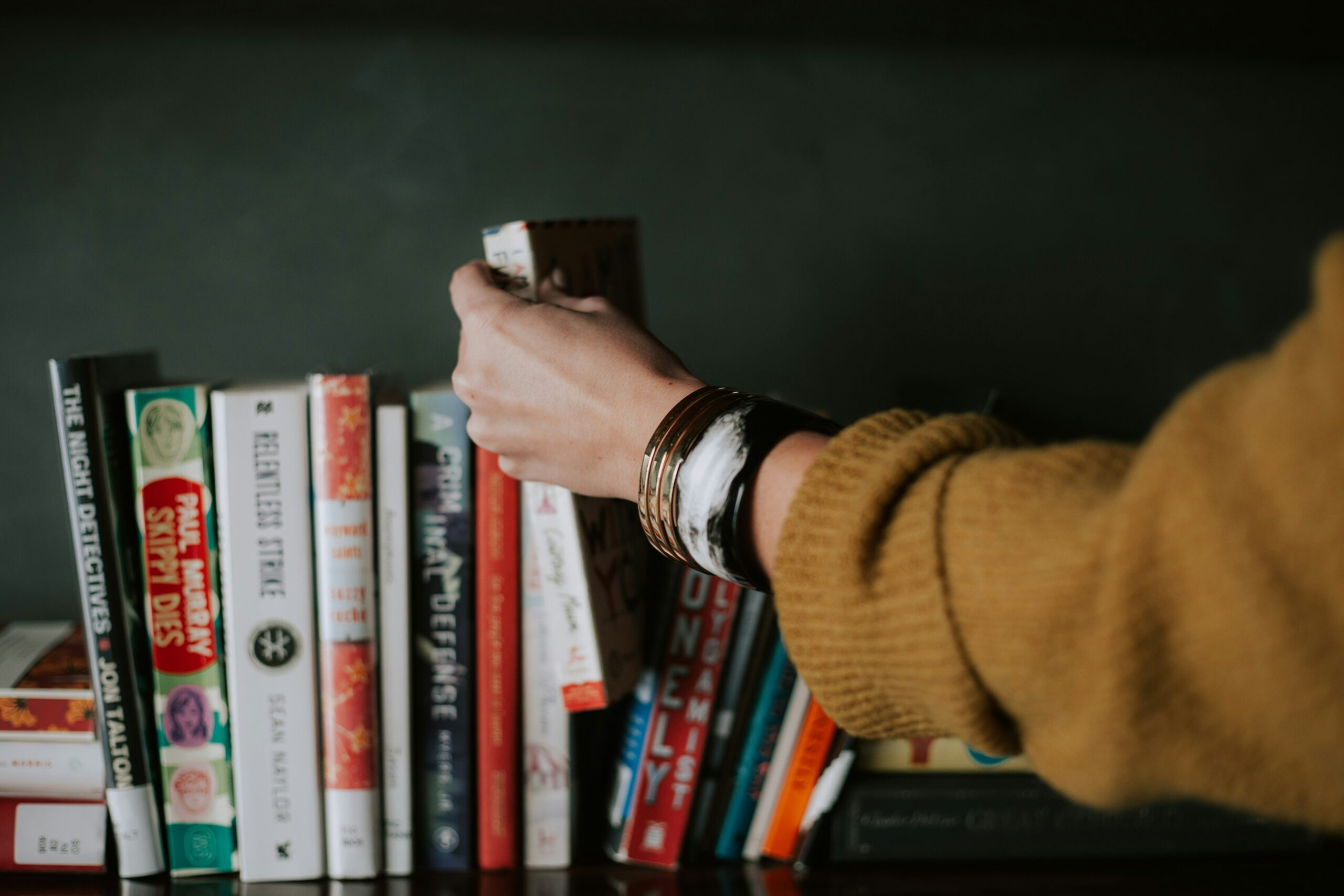
 Follow Us On Instagram
Follow Us On Instagram
